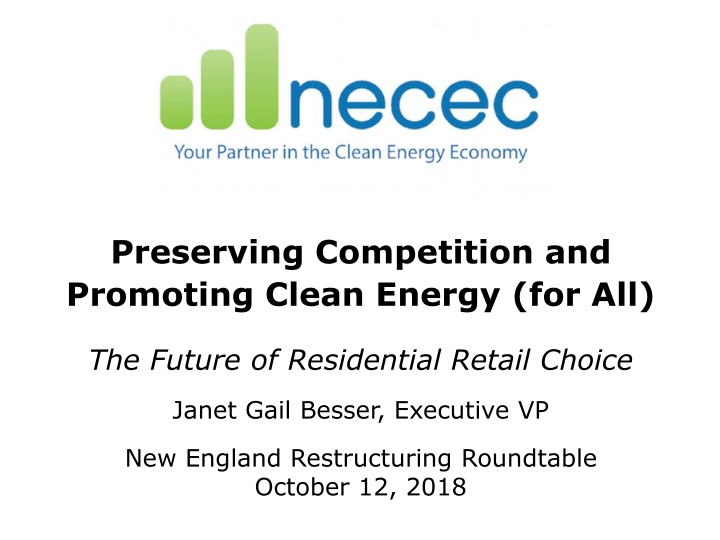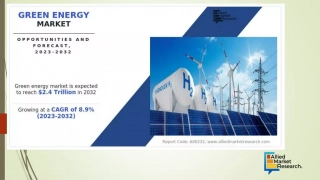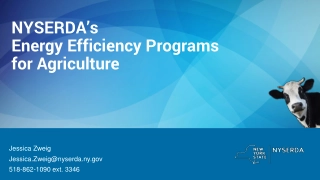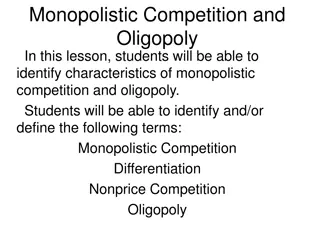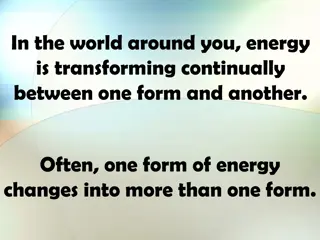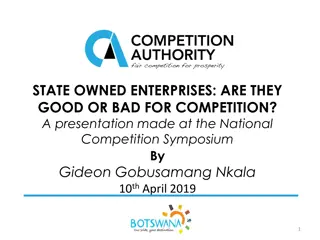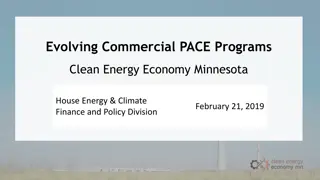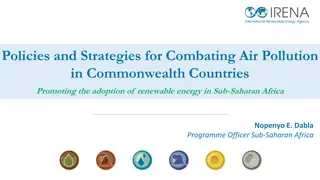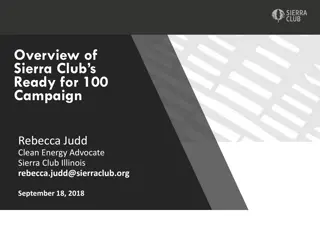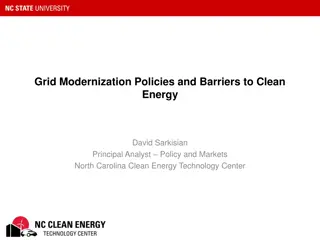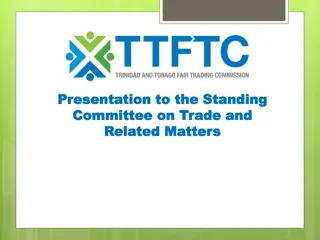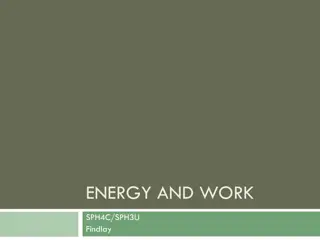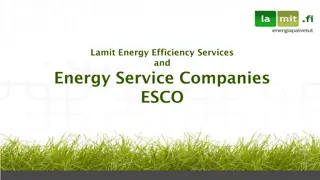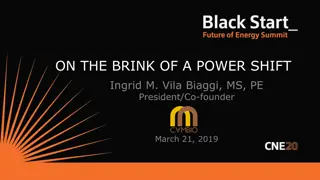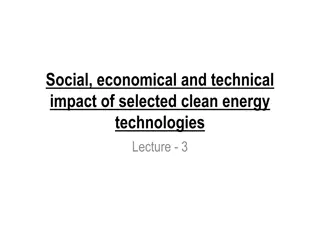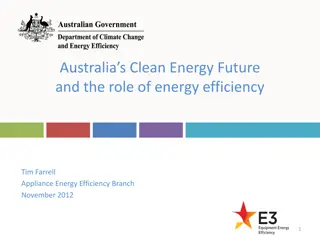Preserving Competition and Promoting Clean Energy: The Future of Residential Retail Choice
Northeast Clean Energy Council aims to establish a world-class clean energy hub in the Northeast, fostering economic and environmental solutions through business, innovation, and policy leadership. Explore the historical context and expansion of competition in the electricity industry, emphasizing the importance of retail choice for residential customers. Discover how advancements in clean technologies have reshaped the landscape, and consider the implications of potential shifts in retail choice policies.
Download Presentation

Please find below an Image/Link to download the presentation.
The content on the website is provided AS IS for your information and personal use only. It may not be sold, licensed, or shared on other websites without obtaining consent from the author.If you encounter any issues during the download, it is possible that the publisher has removed the file from their server.
You are allowed to download the files provided on this website for personal or commercial use, subject to the condition that they are used lawfully. All files are the property of their respective owners.
The content on the website is provided AS IS for your information and personal use only. It may not be sold, licensed, or shared on other websites without obtaining consent from the author.
E N D
Presentation Transcript
Preserving Competition and Promoting Clean Energy (for All) The Future of Residential Retail Choice Janet Gail Besser, Executive VP New England Restructuring Roundtable October 12, 2018
Northeast Clean Energy Council NECEC s mission is to create a world-class clean energy hub in the Northeast, delivering global impact with economic, energy, and environmental solutions. NECEC helps clean energy companies start, scale, and succeed with our unique business, innovation, and policy leadership. 2
Historical Context One score and a couple of years ago We restructured the electricity industry To reduce electricity costs and give residential customers retail choice Commercial and industrial customers were already choosing by entering into special contracts with independent generators Retail competition was (and is) also necessary to ensure robust wholesale competition Suppliers need choice too (Though we re not talking about wholesale competition today) 3
Expanding Competition Moving beyond PURPA and IRM To improve efficiency In traditional and new generation To spur innovation Also supported by policies and programs that led to market development To provide value-added products and services And to reduce costs 4
What Happened? Power plant performance, especially nuclear, improved after restructuring Availability increased, emissions decreased Performance risk shifted to owners New clean technologies expanded NECEC s members span the spectrum of clean energy and related technologies, including EE, DR, DG, software, energy management, smart grid and more Electricity remains a commodity Basic service as insurance Distribution system capabilities (e.g., metering) limited choices, perhaps especially for residential customers 5
What Next? Attorney General s report recommends ending retail choice for residential, particularly low income Do data support this? What will residential customers lose? Don t throw the baby out with bathwater Address bad actors instead Retail competition/choice has enabled new products and services e.g., residential solar leases Basic service structure makes it hard to compete on price Report acknowledges this Meant as insurance but may have inhibited new products 6
Timing is important Don t end residential retail choice just as new technologies are becoming available to make it work better Advanced metering and time varying rates Address technical limitations i.e., modernize the grid to enable competitive solutions providers to offer more value added services, e.g., Home/building energy management Clean DG options, including fuel cells, CHP, other advanced technologies Demand reductions Storage 7
In the Meantime Address specific harms in residential and low income sectors Better customer protections More transparent information Think about residential retail choice in new ways Aggregations municipal, employer/employee, community Finally, analyze whether limiting residential customers to basic service will really provide greater value before doing it 8
Thank you! Janet Gail Besser Executive Vice President Northeast Clean Energy Council E: jbesser@necec.org O: 617-500-9994 9
